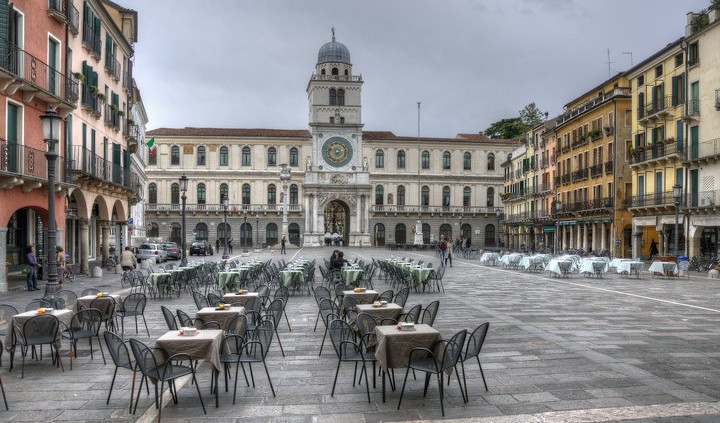Smart cities could improve our lives
Experimentation with smart cities has only recently commenced but it could be used to help fight crime, reduce the hassle of commuting, and improve the overall quality of life.
The city of Padova in northern Italy is probably best known as the setting for much of Shakespeare’s The Taming of the Shrew, its renowned university where Galileo Galilei lectured, and even being home to Italian football legend Alessandro Del Piero. But recently the Italian city has gained celebrity for a much more modern reason: it has been the location of a smart city experiment.
According to an academic paper published in Proceeding of IEEE (Institute of Electrical and Electronic Engineers) International Symposium on a World of Wireless, Mobile and Multimedia Networks 2014, “the concept of ‘Smart City’ consists of exploiting the modern Information and Communications Technologies (ICT) in operating public affairs.”
The experiment in Padova, carried out by the IEEE, used wireless nodes with different kinds of sensors, attached to streets light poles and, through a gateway unit, connected to the Internet to monitor the street lighting. The sensors were able to measure the carbon monoxide levels, air temperature and humidity, vibrations and noise among other factors. One node was equipped with a Benzene sensor to measure air quality.
Once collected, “the data are then analysed to detect anomalies and events that may occur in the monitored area, to profile the user’s behaviours, and to gain insight into the use of city resources, which may serve to optimize or create services for the community,” according to the IEEE report.
The results make for interesting reading and the information collected gives way to a variety of potential uses of the information. For example, a storm which brought an increase in humidity caused a traffic build up which led to an increase in air pollution, then a drop-off as traffic began to flow again. Another anomaly which appeared was a flickering public street light. Information such as this can be used to inform public administrators of similar problems immediately, rather than problems going unsolved for days, weeks or even months causing disruption to citizens.
Songdo in South Korea is a city which was purpose-built from the ground up to be a smart city. The city is situated on land reclaimed from the sea, 40 percent of which is open green area and still has space for 80,000 apartments and 500 million square feet of office space according to Forbes.
With more than 80 percent of the population of North America living in urban areas, cities there have also trialled smart city techniques in attempts to improve the quality of life and the services provided to citizens. In parts of Brooklyn and the Bronx in New York, and Camden in New Jersey, gunshot detecting sensors were installed in an attempt to deal with gun crime according to Business Insider.
In Europe, the highest levels of government have seen the need to invest in smart city technology, the European Commission have allocated €365 million to the development of smart cities within the European Union with cities in Denmark, France and the United Kingdom all running smart city experiments in recent years according to Business Insider.
With a recent report from Cisco that the population of cities is set to rise by 70 percent to 6.3 billion by 2050 the need for public administrations to run their cities as efficiently and economically viably as possible has never been more important and so there is serious potential for smart city technology to play a massive role in helping them achieve this.
With Johnathan Reichental (CIO, City of Palo Alto), Karl-Filip Coenegrachts (CSO, City of Gent), Shobhit Shukla (Co-Founder and Chief Revenue Officer, Near) and Gary Atkinson (CEO, Enlight) among others set to speak at DTS 2017 it appears that smart cities is a topic which will become more popular as a topic of conversation both in the tech community and wider society in the near future.










Trackbacks & Pingbacks
Beverly Bultron
[…]Every the moment inside a when we choose blogs that we read. Listed beneath are the most up-to-date web pages that we select […]
Comments are closed.